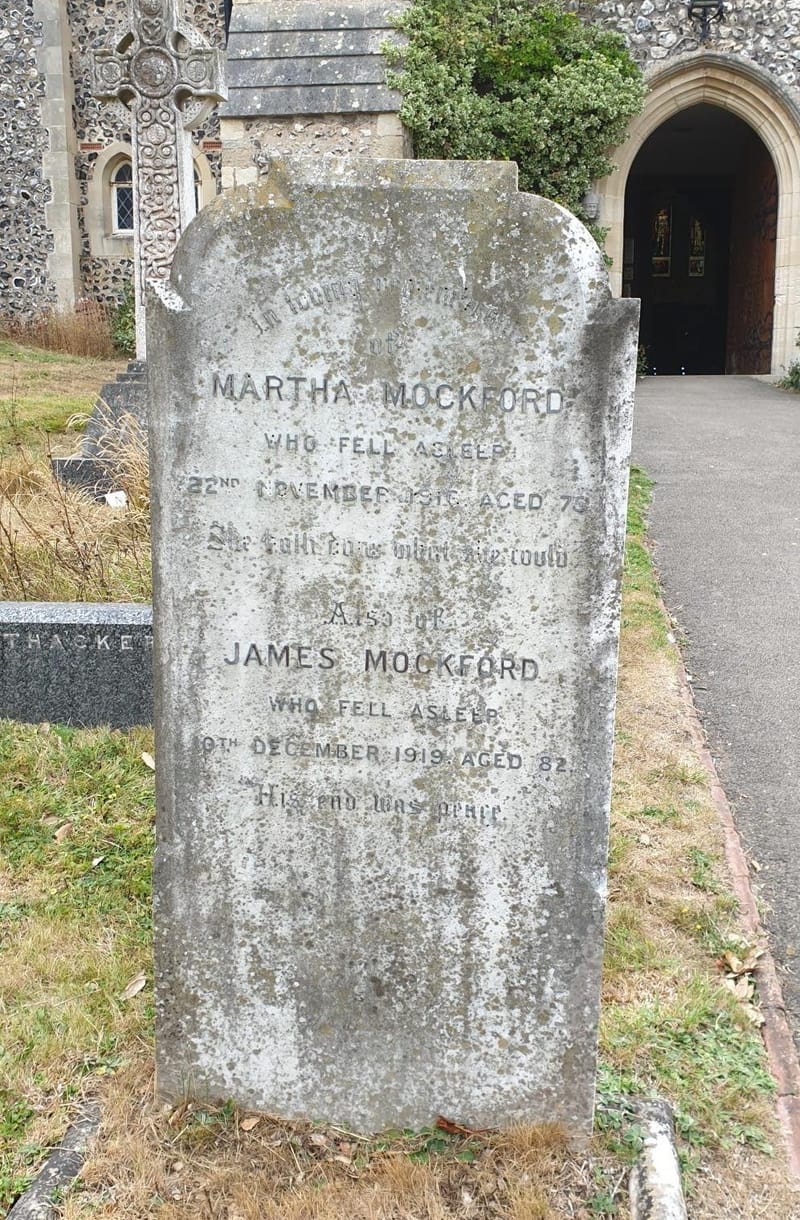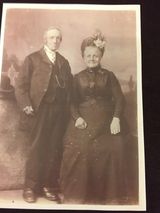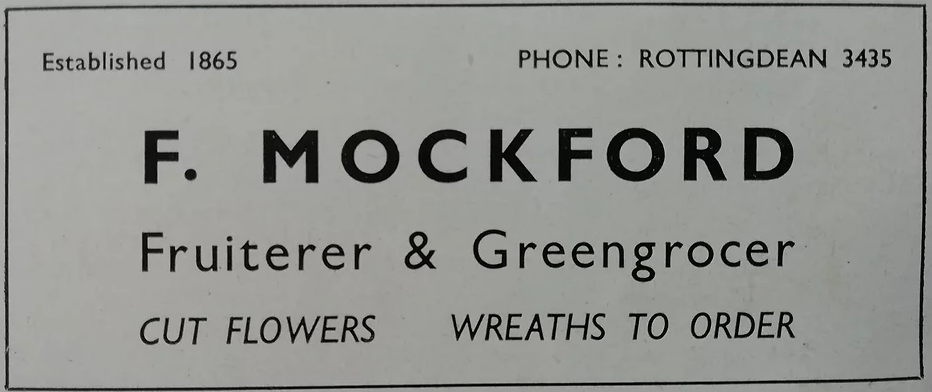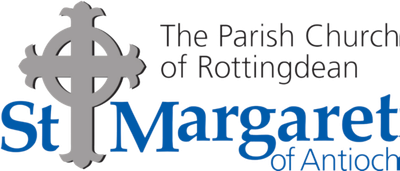51

Standing on the left of the path to the church is grave [51] commemorating Martha and James Mockford. The name Mockford was first recorded in 1296 and for hundreds of years has been closely associated with Rottingdean and the surrounding areas. Indeed, parish registers suggest that within the space of only 28 years between 1784 and 1812, a total of 17 individual Mockfords were buried in St. Margaret's churchyard alone. The Mockfords (the name possibly a combination of the Anglo-Saxon words for donkey and water crossing) were mostly farm labourers in Sussex until the mid-19th century when migration to industrial cities and emigration abroad spread the name far and wide.
In Rottingdean itself, James and Martha Mockford were known for running a fruit and vegetable (and chocolate!) shop in the High Street – in the building where the Old Cottage Tea Room [view] now stands. Rottingdean’s current fruit and vegetable shop, Deveson’s, is now next door. They are mentioned in Angela Thirkell’s (grave [13b]) memoir ‘Three Houses’…
“Then, crossing the Newhaven Road… Mrs. Mockford at the little fruit and chocolate shop which always smelt of ripe pears…”
In ‘The Remarkable History of Rottingdean’, author Derek Heater states:
“‘Crowey’ Mockford, assisted by his placid wife, sold fruit, vegetables and chocolate. He used his unsold stock for his pigs, which he kept on a plot now partly occupied by the Village Hall.”
According to a later advertisement the shop was established in 1865 - but at the time the advert was published it was being run by James’ son Frank. Frank’s initial can be seen on the shop sign in the photograph of the shop below (F & M Mockford). By the age of 21, Frank was already listed as ‘Assistant in Business’ in the 1911 census.
“The Mockford Files…”
In 2001, the Brighton Argus reported on a remarkable Mockford family reunion. More than 100 Mockfords from around the world came to gather in Rottingdean. The idea of Catherine Wickens (nee Mockford) and her half-brother John Mockford (who had researched their family tree) they gathered a multitude of Mockfords at the Whiteway Centre for a ‘family reunion’.
In addition to their forebears selling fruit and vegetables in Rottingdean, they also discovered that, in 1923, Frank Mockford invented the international ‘mayday’ signal for distress calls (based on the French ‘’m’aidez”) and Fred Mockford pioneered the introduction of speedway racing in Crystal Palace in 1928. For those of us of a certain age, perhaps the best known Mockford (who was actually present at the 2001 Whiteway Centre reunion) was Jeanne Mockford – a popular TV actress whose 1970s TV comedy role credits include Senna the Soothsayer in Frankie Howerd’s ‘Up Pompeii’, Florrie in ‘Last of the Summer Wine’ and (implausible teenager) Duffy’s mother in ‘Please Sir!’.
(Many thanks to George Sutton for his assistance with the Mockford family history)

The Mockford's geengrocers on the High Street

James & Martha Mockford

Frank Mockford's advert for the shop

James, Martha and their six children on the 1891 census



